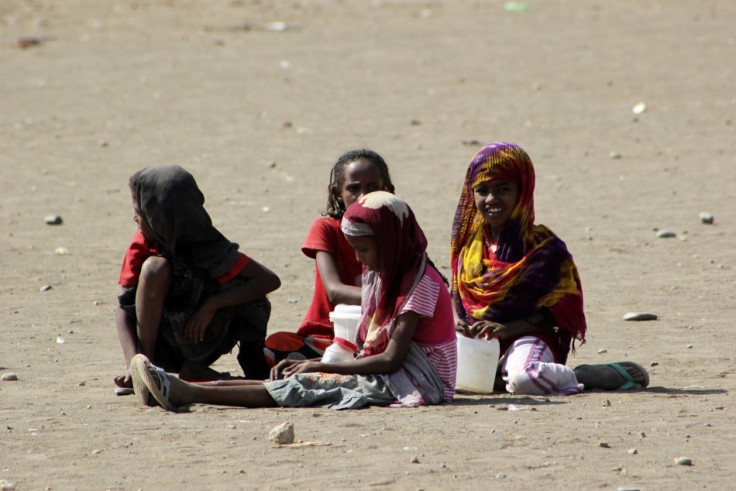Manjus: Eritrean Kalashnikov Smuggler and Human Trafficking Mastermind
High-ranking Eritrean officials orchestrate abduction of children

A fresh report presented before the European Commission has published first-hand testimonies of victims of human trafficking from Eritrea to the Sinai, pointing the finger directly at Eritrean high officials.
The mastermind behind the cross-border smuggling of people and weapons is a shadowy senior commander called General Teklai Kifle aka "Manjus".
Cited in three UN Monitoring Group reports on Somalia and Eritrea (2011, 2012, 2013), Manjus earns at least $3.6 million per year in profits from smuggling weapons and ammunitions through Sudan to Egypt.
The final recipients of the weaponry - mainly old Russian Kalashnikovs, rocket grenades and ammunition - are believed to be Palestinians in the occupied territories and Islamist groups in the Sinai.
The weapons export is organised by two subordinates of Manjus, Borhame and Yesef Hadegu. But one witness who used to work as translator for smuggler Abu Ahmed told UN experts, "Manjus gets all the money. They don't get anything. They are in the military so they just do what they are told."
The blood money earned by Manjus goes all the way up to the Eritrean President Isaias Afewerki, he said.
Targeting children with relatives in the west
The UN has identified Manjus as the main architect behind the kidnapping of Eritreans within that country. The latest report entitled The Human Trafficking Cycle: Sinai and Beyond by Swedish and Eritrean activists elucidates the murky smuggling process.
The number of people being abducted from within the country is growing at a rapid clip. Perhaps the most startling case is the kidnappings of 16 and 17-years-old from the Sawa Military camp in the semi-desert eastern Eritrea region.
The Eritrean government forces every student to complete the last year of high school there. In the past two years, there were several cases of abduction of children from the camp by high-ranking Eritrean officials.
"Seven children - all with relatives in other western countries - were ordered by a high-ranking officer in Sawa to get into this car. They were then driven to Sudan without consent," Meron Estefanos, an Eritrean activist and radio broadcaster told IBTimes UK. "Once the children reached Sudan, the traffickers made the children call their parents and told them if they did not pay $7,500 they would be sold to the Sinai."
The children were released in Khartoum after the family paid the ransom. Smugglers seem to target children with relatives living in the west for trafficking from Eritrea.
"They knew that they had families in Europe," said Estefanos.
Sudanese help
Estefanos pointed out that without the help of local Eritrean security officials, it would be impossible to drive to Sudan in 24 hours without being stopped at a checkpoint.
"The Eritrean government is responsible and guilty for not stopping this," she said.
In October 2013, there were several reports of the abduction of 211 children from Sawa Military Camp, for whom a ransom of $10,000 was demanded per child.
Manjus' counterparts in Sudan are Mabrouk Mubarak Salim and Hamid Abdallah.
Abdallah, a wealthy Karthoum-based businessman, is described by the UN experts as an "asset for both the Sudanese and Eritrean intelligence services, who has kinship ties to border police monitoring the Sudan-Eritrea border".
The most recent report states that between 2007 and 2012, some 25,000 to 30,000 migrants were trafficked by Eritrean and Sudanese security officers, who collude with Bedouin gangs.
Those targeted are Eritrean refugees. It has been estimated that 3,000 Eritreans flee their impoverished and repressive homeland every month.
© Copyright IBTimes 2024. All rights reserved.







